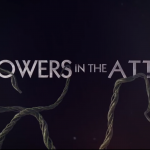Every Monday in Books Besides the Bible, Ethan Bartlett considers the value and pleasure of reading for Christians.
In a bid to scare almost everyone off of my column forever, this week I’m going to talk about meta-narratives.
A meta-narrative is a somewhat discredited, but still sometimes useful, concept in literature. It refers to a sort of over-story, a framework story into which a lot of smaller narratives fit. The term “manifest destiny” (the 19th-century idea that the United States was destined to stretch from the Atlantic to the Pacific) is a good example of a meta-narrative. It was a grand, overarching idea, or story, into which a lot of specific stories (both purposely fictional ones and purportedly non-fictional) were made to fit.
Growing up in the Midwest among various types of conservative Christians, there was a sort of meta-narrative associated with the Palestinian-Israeli conflict. Mainly, there was a set of unquestioned assumptions we had, an overarching story that informed our interpretation of any specific news report or other coverage of the conflict. It was something like, “Israel= God’s people, good, can do no wrong. Palestinians = bad and also wrong. The PLO = terrorists.”
While it is embarrassing to admit that I ever thought in such stark, nuance-free terms, to some extent these notions never left me. While of course I understood that there were complexities to the situation in theMiddle East, I never particularly understood the PLO, for example, as anything other than a group of extremist terrorists.
Enter Mornings in Jenin. A novel that takes place over the course of sixty years, it traces the story of a Palestinian family from several years before the formation of Israel to the Jenin massacre of 2002. While it is by no means a balanced book, as it sits squarely on the side of the Palestinians, it was revelatory for me in several ways.
One of these ways was in its adroit analysis of the development of a terrorist. The narrator who carries the bulk of the novel, Amal, has an older brother named Yousef. Early in the book Yousef is a character filled with light and love; over the course of the story, the wars rob him of his wife, his children, his home, and much of the rest of his family, leading Yousef to join the PLO and plot terrorist bombings in retaliation for the terror he has experienced.
I am not qualified to analyze how historically accurate, or likely, the account of Yousef’s plight is. What amazed me, however, was how plausible it is. That is, put in Yousef’s situation, I honestly can’t say with confidence that I would be different. And that is the power of this book: to humanize what many people like me would, without thinking, consider “the other side.”
It has often seemed to me that growing up is a process of shedding simplistic meta-narratives. Growing up is often a process of realizing that anybody I consider the enemy, anybody I consider different, has reasons for their actions that are just as complex, nuanced, and (to them) justified as my own. If nothing else, Mornings in Jenin is an exercise in charity. It is an exercise in remembering that the enemy—any enemy—is not a faceless proponent of some ideology I reject, but a real person with flesh and blood, for whom Christ died. If I need to be faced with a novel that makes me uncomfortable or whose politics I don’t necessarily agree with to be reminded of this fact, then so be it.











